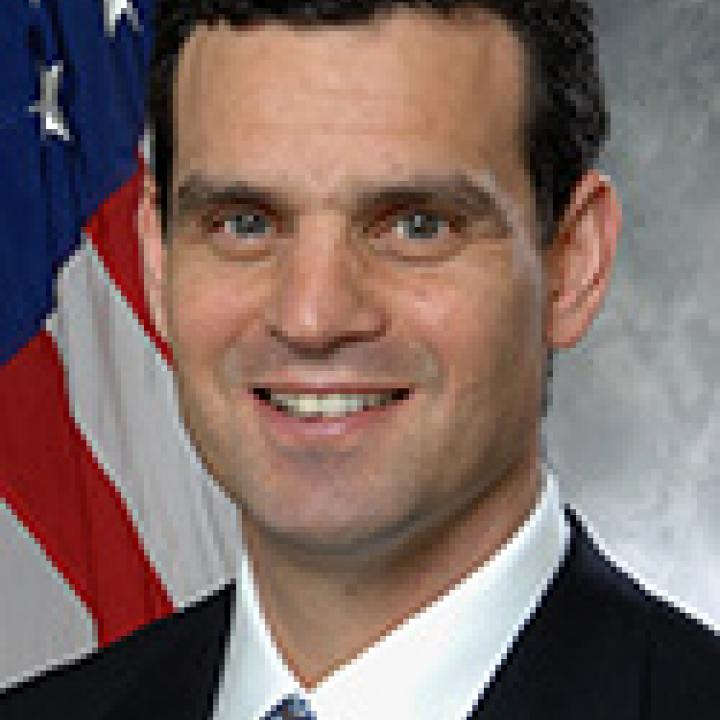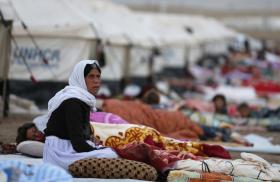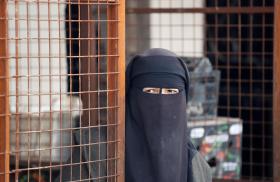
- Policy Analysis
- PolicyWatch 1650
Enhancing International Cooperation against Terrorism Financing

Part of a series: Counterterrorism Lecture Series
or see Part 1: U.S. Efforts against Terrorism Financing: A View from the Private Sector
How is the United States working to improve global cooperation and coordination to combat terrorist financing?
On April 7, 2010, David Cohen, the Treasury Department's assistant secretary for terrorist financing and financial crime, addressed a special Policy Forum luncheon sponsored by The Washington Institute's Stein Program on Counterterrorism and Intelligence. A key member of the Obama administration's national security team, Mr. Cohen focuses on developing strategies to combat the financial support networks behind a wide range of threats, including terrorist groups, organized criminal enterprises, and proliferation. The following is a rapporteur's summary of his remarks.
The international community faces a daunting challenge in confronting global terrorism financing. The task is especially tough in today's environment, with money constantly crossing borders and rocketing around the globe. The Treasury Department's Office of Terrorism and Financial Intelligence (TFI) plays a unique role in this arena, facilitating efforts on many fronts, both domestically and abroad. The Middle East remains the primary focus of these efforts, particularly Iran and al-Qaeda.
The Iranian Problem
Iran is the world's principal state sponsor of terrorism. Despite the global focus on the regime's nuclear program, the United States has continued to work diligently on countering Iranian financial support for Hamas, Hizballah, and other regional terrorist groups. For example, the Treasury Department has designated both the Iranian Bank Saderat and the Islamic Revolutionary Guard Corps' Qods (Jerusalem) Force for supporting terrorism. The international community has yet to support these designations, however.
The Financial Action Task Force (FATF) has also applied pressure on Iran in recent years. In 2007, the organization publicly highlighted the regime's deficiencies in countering money laundering and terrorism financing. And in February 2009, it called on member states to apply countermeasures to defend their financial sectors against risks emanating from Iran; it has since reiterated this call three times. FATF's ongoing efforts have sent a worldwide message that dealing with Iran is risky business.
The international community appears to be heeding these warnings. Both China and Russia are members of FATF and have joined in the calls for countermeasures against Iran. This is a testament to the organization's strength. FATF prides itself on impartiality and technical expertise, setting standards by which all countries -- not just repeat offenders such as Iran -- are judged. In light of these and other efforts, the international community now realizes that Iran has chosen not to engage with the rest of the world, not the other way around.
Al-Qaeda's Financial Woes
Al-Qaeda is in its worst financial state in years. This can be traced, at least in part, to UN Security Council Resolution (UNSCR) 1267, which established the Al-Qaida and Taliban Sanctions Committee. Now more than a decade old, the 1267 designation process has been quite effective in disrupting terrorist activity. Traditional sources of funding for al-Qaeda, such as donors and charities in Saudi Arabia and other Gulf countries, have been increasingly obstructed. The Saudis have proven especially effective in this regard; the United States also has a cooperative relationship with the United Arab Emirates on the issue. Kuwait and Qatar are substantially less committed, however, and Washington is working hard to alter this worrisome situation.
Recently, both Ayman al-Zawahiri, al-Qaeda's second in command, and Sheikh Said al-Masri, its commander in Afghanistan, have made public pleas for monetary support -- a clear sign of the group's financial woes. In response, various al-Qaeda affiliates have resorted to other means of fundraising, such as extortion, kidnapping, and the drug trade. Accordingly, efforts are being made to combat both traditional and nontraditional sources of funding, especially in Afghanistan and Pakistan. The Treasury Department helped establish and now serves as the co-lead for the Afghan Threat Finance Cell, where authorities from the Defense Department, Drug Enforcement Administration, and other agencies collaborate against Taliban financing. Nevertheless, the Taliban remains well funded by the massive Afghan drug trade and generous Gulf donors.
Despite positive developments, then, the fight against al-Qaeda and Taliban financiers is far from over. Al-Qaeda is looking for money and can still count on a large pool of willing donors. The group also remains capable of planning attacks, as seen in the thwarted 2009 plot to bomb the New York subway system, which was tied directly to the al-Qaeda core. U.S. and international efforts have limited al-Qaeda's ability to plan, communicate, and recruit, but the group is certainly not out of business.
Challenges in Europe
Over the past few years, the UNSCR 1267 designation process has come under scrutiny in Europe. Some individuals and entities have brought their complaints to court, asserting that the process violates fundamental human rights. This in turn has raised questions about the long-term viability of the 1267 committee's terrorism blacklist.
Such concerns are exaggerated, however, because they fail to consider improvements aimed at enhancing protections for designees. An extremely thorough review process is now in place, examining whether there is justification for keeping individuals on the list. Fifty-eight names have been delisted since the review began in June 2008. These entities were removed primarily because they are no longer affiliated with al-Qaeda or the Taliban. Given that persuading individuals to turn away from terrorism is one of the 1267 regime's most important goals, this is another indication that the process is having an impact.
The European Parliament recently voted down an agreement with the United States that would have continued the flow of data to the Treasury Department's Terrorist Finance Tracking Program (TFTP). Since early 2009, the TFTP has been unable to function to its full potential, leaving the international community open to significant threats. In late 2008, a French counterterrorism expert serving in an oversight capacity with the program reported that the TFTP had been particularly helpful to the EU, providing member states with more than 1,300 leads on specific threats.
The U.S. government stands ready to negotiate an agreement that will ensure the long-term operation of this crucial, proven tool. Such an agreement is of the utmost importance -- at present, there is a very real risk that information crucial to preventing a terrorist attack will not be available to U.S. and EU authorities.
Conclusion
The United States is working tirelessly to combat terrorism financing, and its efforts are supplemented by international mechanisms such as FATF and the UNSCR 1267 and 1373 committees. A broad array of international support is needed if these mechanisms are to continue operating as effectively as possible. For example, more support is needed for UNSCR 1373, which obligates member states to enact laws that apply targeted financial measures against terrorists and their support networks. This resolution is particularly important because of its ripple effect -- when a country criminalizes terrorism financing and begins to enforce targeted sanctions, it sends a stern message to its citizens that funding terrorists is unacceptable.
The principal obstacle to implementing 1373 is political will. Member states are not always willing or eager to pass new laws on this issue, and breaking through such resistance will be difficult. But the U.S. government is committed to this process and is working daily to foster cooperation, all toward the goal of protecting Americans and others around the world from the threat of terrorist attacks.
This rapporteur's summary was prepared by David Bagby.





